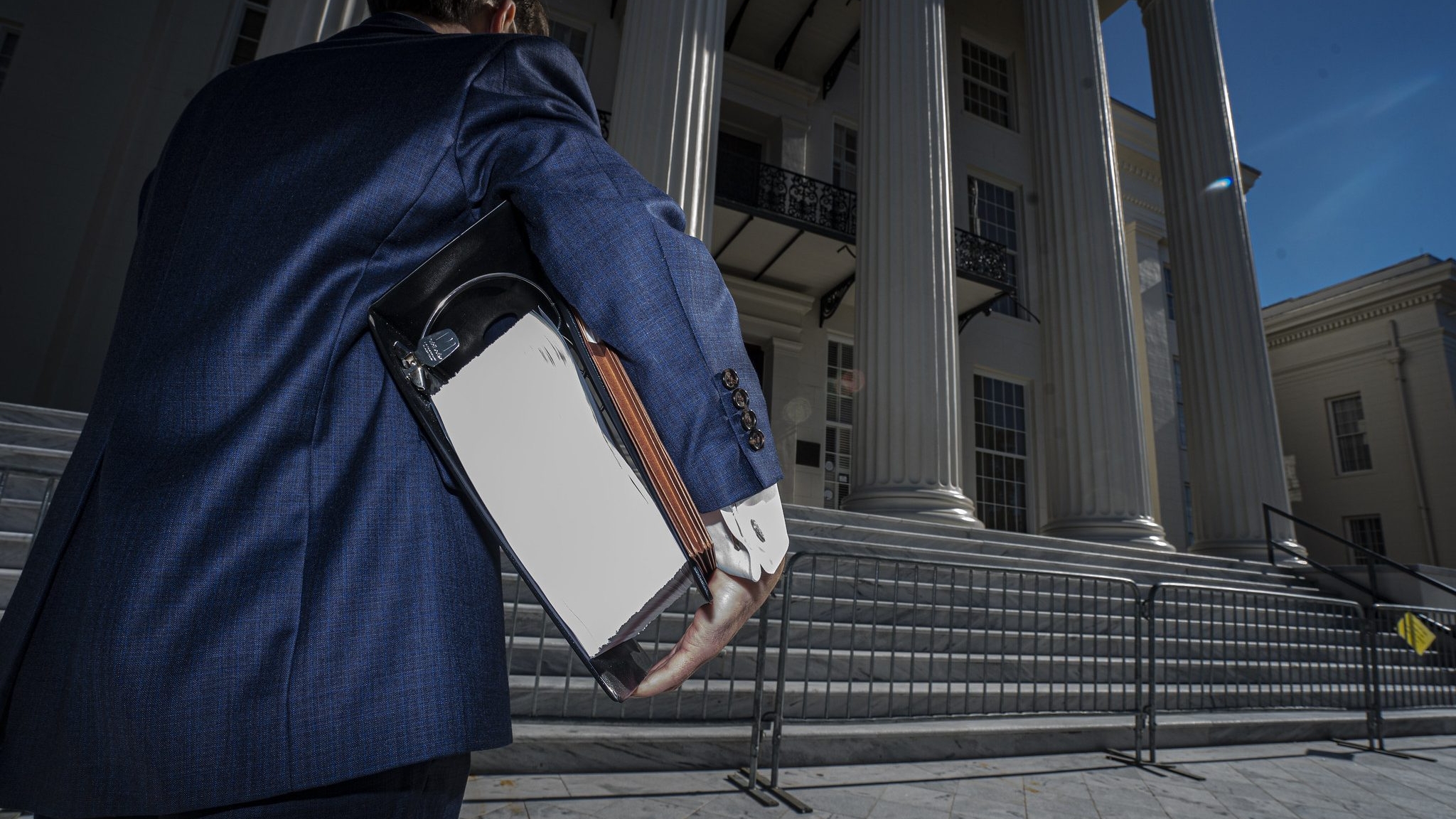The Governor’s Study Group on Gambling Policy released an 876-page report on Friday, recommending that the state legalize and regulate all forms of gambling including a state lottery, five to seven casinos and a sportsbook. The committee estimated that gambling legalization could add another $700 million to state coffers.
“Gambling will work in Alabama and we feel that the advantages outweigh the disadvantages,” said former Montgomery Mayor Todd Strange, who chaired the study group.
Strange was asked how many casinos would be allowed in the state and where they would be. Strange said five to seven, but that the committee did not get into the specifics of the locations. When asked about Huntsville and Fort Payne, Strange said that gambling venues would take revenue away from local businesses.
Strange said that there was no agreement in place with the Poarch Band of Creek Indians that operate electronic bingo facilities in Wetumpka and Atmore, nor with the federal government, which regulates gaming on Native American land. Strange said that a compact with PCI would be negotiated after the Legislature passes the constitutional amendment legalizing games of chance and if it is ratified by voters.
One legislator speaking anonymously said that Poarch Creek Indians have enough support in the Legislature to stymie gambling legislation if their concerns are ignored. Last year, PCI proposed paying the state $1 billion to operate class three gaming at its existing casinos as well as a third facility to be built in North Alabama. That proposal would have also included a state lottery but was opposed by the owners of other gaming facilities.
The PCI proposal as well as a number of bills establishing a lottery and other gambling proposals were introduced early in the 2021 legislative session. Alabama Gov. Kay Ivey, however, intervened and announced in February that she was establishing the study group to consider gambling expansion.
The study group was to examine existing gambling policy and the potential revenue from legalizing gambling. Ivey asked the Legislature to hold off on doing anything until after her study group could finish their work. COVID interrupted the legislative session as well as the work of the study group. The Legislature came back in May and passed budgets, a school bond issue, local bills and little else. It was Dec. 18 before the study group released its report.
Strange did not say whether they were recommending a special 2021 gambling referendum to consider the committee’s gambling legislation or if the issue should be on the 2022 election ballot.
The governor’s study group on gambling estimated a state lottery could bring in as much as $300 million a year for state coffers. The study group estimated that legalizing casino gambling could bring in as much as $300 to $400 million a year. A sportsbook could bring in another $10 to $15 million.
This was based on estimates that 60 percent of the population of Alabama would participate in the gambling. The study group estimated that more than 66,000 Alabamians could develop gambling addictions.
Joe Godfrey, the executive director of the anti-gambling Alabama Citizens Action Program, scoffed at the suggestion that a lottery would bring in $300 million.
“It will not bring in the money they say that it will,” Godfrey said, adding that it will also decrease sales tax revenues. “It takes from the neediest and the only people who it benefits are the gambling bosses who get rich off of it.”
[visual-link-preview encoded=”eyJ0eXBlIjoiaW50ZXJuYWwiLCJwb3N0IjoxMDQ3NTEsInBvc3RfbGFiZWwiOiJQb3N0IDEwNDc1MSAtIEdvdi4gS2F5IEl2ZXkncyBzdHVkeSBncm91cCBvbiBnYW1ibGluZyByZWxlYXNlcyByZXBvcnQiLCJ1cmwiOiIiLCJpbWFnZV9pZCI6MTA0NzU2LCJpbWFnZV91cmwiOiJodHRwczovL3d3dy5hbHJlcG9ydGVyLmNvbS93cC1jb250ZW50L3VwbG9hZHMvMjAyMC8xMi81MDczMzgyMzI0Ml9lYzYxOTFkZTkxX2stZTE2MDgzMTgyNzI0MDMtMTAwMHg2MDAuanBnIiwidGl0bGUiOiJHb3YuIEtheSBJdmV5J3Mgc3R1ZHkgZ3JvdXAgb24gZ2FtYmxpbmcgcmVsZWFzZXMgcmVwb3J0Iiwic3VtbWFyeSI6IlRoZSA4NzYtcGFnZSByZXBvcnQgdWx0aW1hdGVseSBsYXlzIG91dCBmaXZlIG9wdGlvbnMgZm9yIEl2ZXkgYW5kIHN0YXRlIGxlZ2lzbGF0b3JzIHRvIGNvbnNpZGVyLiIsInRlbXBsYXRlIjoidXNlX2RlZmF1bHRfZnJvbV9zZXR0aW5ncyJ9″]
The Alabama Constitution of 1901 bans games of chance. There are local amendments allowing bingo in some locales. The Alabama Supreme Court has ruled that bingo is a game played on paper cards and that so-called electronic bingo machines are actually slot machines under Alabama law.
Despite the clarity of Alabama law, there are a handful of locations that operate electronic bingo machines in defiance of Alabama law. The Poarch Creek Indians are regulated under federal Indian gaming statutes, which differ from Alabama law in its definition of bingo.
The 2021 legislative session begins on Feb. 2. The Legislature will have to deal with the coronavirus crisis and the economic impact it spawned, rural broadband needs and prison issues including a Department of Justice lawsuit alleging inhumane conditions in Alabama’s prisons.




















































